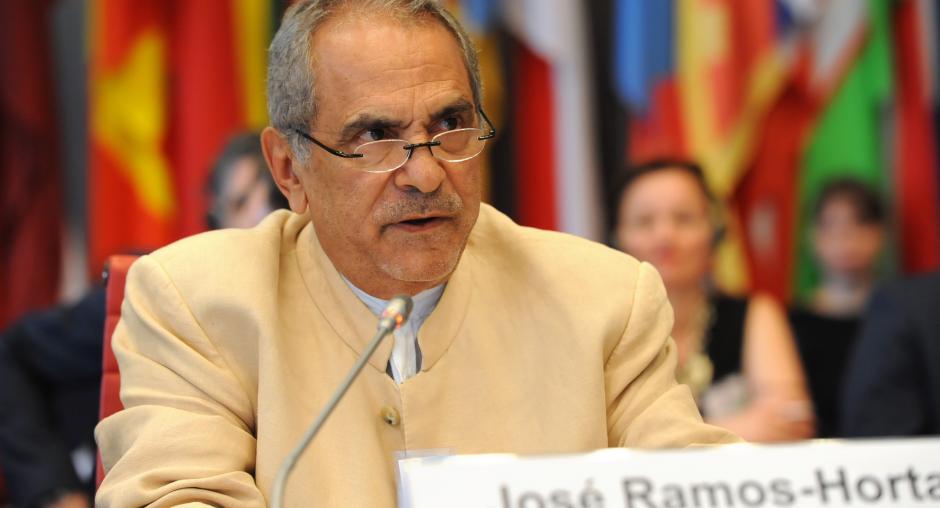2016 OSCE Annual Security Review Conference focuses on reviving co-operative security in a challenging environment

VIENNA, 28 June 2016 – High-level representatives of OSCE participating States, Partners for Co-operation and partnering organizations are exploring how to revive co-operative security against the backdrop of current challenges to European security, during the three-day 2016 Annual Security Review Conference (ASRC), which started today in Vienna.
The Conference brings together about 400 participants and was opened by the Special Representative of the Federal Government of Germany for the OSCE Chairmanship Gernot Erler who stressed that the discussion should provide an “honest, scrupulously constructive dialogue.” He welcomed the agreement by all OSCE participating States to use the platform of the ASRC to discuss the crises and conflicts in the OSCE area in a frank manner.
“Peace in Europe is broken and the fundamental values and principles of the European security order have been and are being called into question. This situation is unacceptable,” he said. “At the same time we must adhere to a tone characterized by mutual confidence.”
Looking at the conflict in and around Ukraine in particular, Erler emphasized that the Special Monitoring Mission to Ukraine (SMM) must not be threatened nor its work obstructed. “The SMM must not be made blind,” said Erler as he criticized the recent attacks on SMM unarmed aerial vehicles and cameras.
Erler welcomed the keynote speaker José Ramos-Horta, 1996 Nobel Peace Prize laureate and former president of Timor-Leste: “Mr. Ramos-Horta fought for the freedom of his country and his people with perseverance and by peaceful means. Today, he can be a source of inspiration for us in the OSCE,” Erler said.
In his speech, Ramos-Horta said that Europe is at a crossroads, but the region had faced greater challenges in the past. “You can do it again, and do better still,” he said, referring to the rebuilding of Europe after the Second Word War. With a view to many unresolved conflicts Ramos-Horta urged: “The preferred option should always be prevention of conflicts, dialogue and mediation to settle disputes. When these are actively, creatively and patiently exercised in a timely fashion more often than not they produce better results than the use of force.”
OSCE Secretary General Lamberto Zannier said that despite divergent interpretations of the origins of the current crisis in European security “there is also a growing realization that we cannot simply give up on seeking a convergence of interests where this appears possible.”
Highlighting the agreement reached earlier this year by participating States on a second set of OSCE confidence-building measures on cybersecurity, Zannier said that the OSCE as the most inclusive platform for dialogue in the northern hemisphere should play a significant role in revitalising the discussion on strengthening arms control. “Establishing a neutral mechanism for military fact-finding, inspections under an OSCE flag or even a centralized and institutionalized OSCE verification/inspection mechanism are some of the suggestions that we may want to consider,” he said.
Michael Møller, Director-General of the United Nations Office at Geneva conveyed a message to the ASRC participants by the UN Secretary General Ban Ki-moon, re-affirming the benefits of enhancing “the invaluable co-operation between the OSCE and the United Nations.”
Møller welcomed the call by Germany’s 2016 OSCE Chairmanship for ‘renewing dialogue, rebuilding trust and restoring security.’ “As we work to pursue these goals, we need to devise joint strategies according to our respective strengths,” he said.
